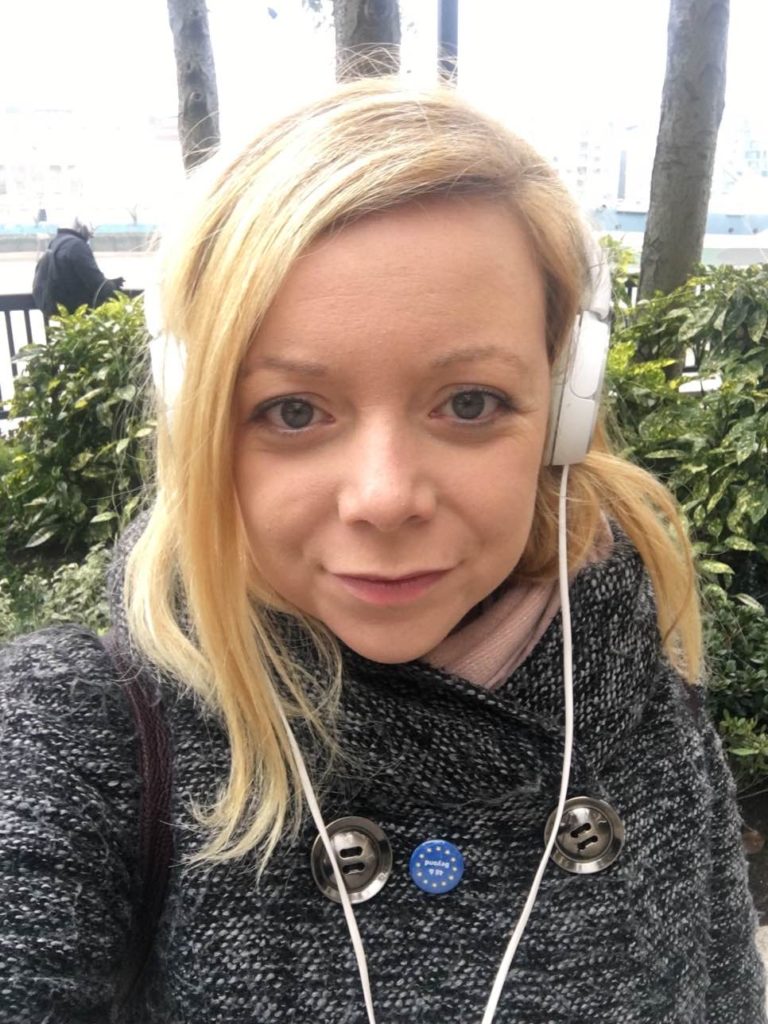
After working a few times with her, we finally had the pleasure to have a (long and super friendly) Skype call with Veronica.
Veronica is a talented EN<>ES translator and interpreter originally from Spain who made London her home. Her expertise is mainly in media, although she worked in the past as a medical interpreter. She is currently busy working on a media and audiovisual project.
Q: So you are originally from Spain, do you find it challenging to work in your source language country as many agencies require “in-country” translators? Have you come across clients who wanted to work with only in-country based translators?
A: Actually, it was quite the opposite for me. When I moved to London, I managed to work with more UK based agencies and clients. Before, when I applied from Spain, I didn’t receive many replies. Since I moved here, the same companies I applied to from Spain finally accepted my CV. It could be because the banking systems are entirely different, as international payments can be tricky sometimes. However, I am glad to be here, and I had the pleasure to work for many clients, like the BBC.
Q: What is your favourite CAT Tool (if you use any) and why?
A: I use MemoQ and Wordfast, as I work on a Mac, which is not compatible with Trados.
Q: What would be your ideal project?
A: Definitely a project in the media field. Working with languages is a great experience, especially in this field, as languages evolve very fast. When it comes to Romance languages, especially such a widely spoken language as Spanish, you can never learn enough.
There is no such thing as “correct” or “incorrect”, as it depends on the variety and the context, and the best way to learn about it if you are in contact with speakers from other countries.
Q: And your least project favourite project?
A: A project with a rushed deadline with the client constantly chasing me.
Q: You were referred to us by Maria Scheibengraf. Would you say that it is admirable for translators to have created a network and refer each other?
A: Yes, Maria and I are friends. We meet from time to time, and we talk about many things, not only work. It is nice to spend time talking with someone from the industry, as sometimes other people can’t understand much about my work. I had the chance to meet many colleagues, and we can help each other. For example, last year María and I met a Portuguese colleague whilst she visited London, Fernanda.
I would also like to mention the #Litranslators hashtag on LinkedIn, which Melisa Palferro created. The translation community then created a networking platform around it to empower translators and create a sense of community. It helps us to recommend colleagues or ask language-related questions.
Q: Yes, that’s quite empowering as translating from home can be pretty lonely.
A: Yes, it is good to know someone else who does the same job and faces the same issues.
Our chat was quite long and interesting, and we talked about different topics, including the future of translation, living in London as a foreigner, networking, good and (naughty) clients.
I personally think it is nice to shift our attention to freelancers and create a relationship that goes beyond a few emails. We also spoke about the challenges of translating Romance languages into English and how, sometimes, CAT tools and tags are in the way.
As we ended our chat, we promised to catch up and meet in person for a coffee. ”

